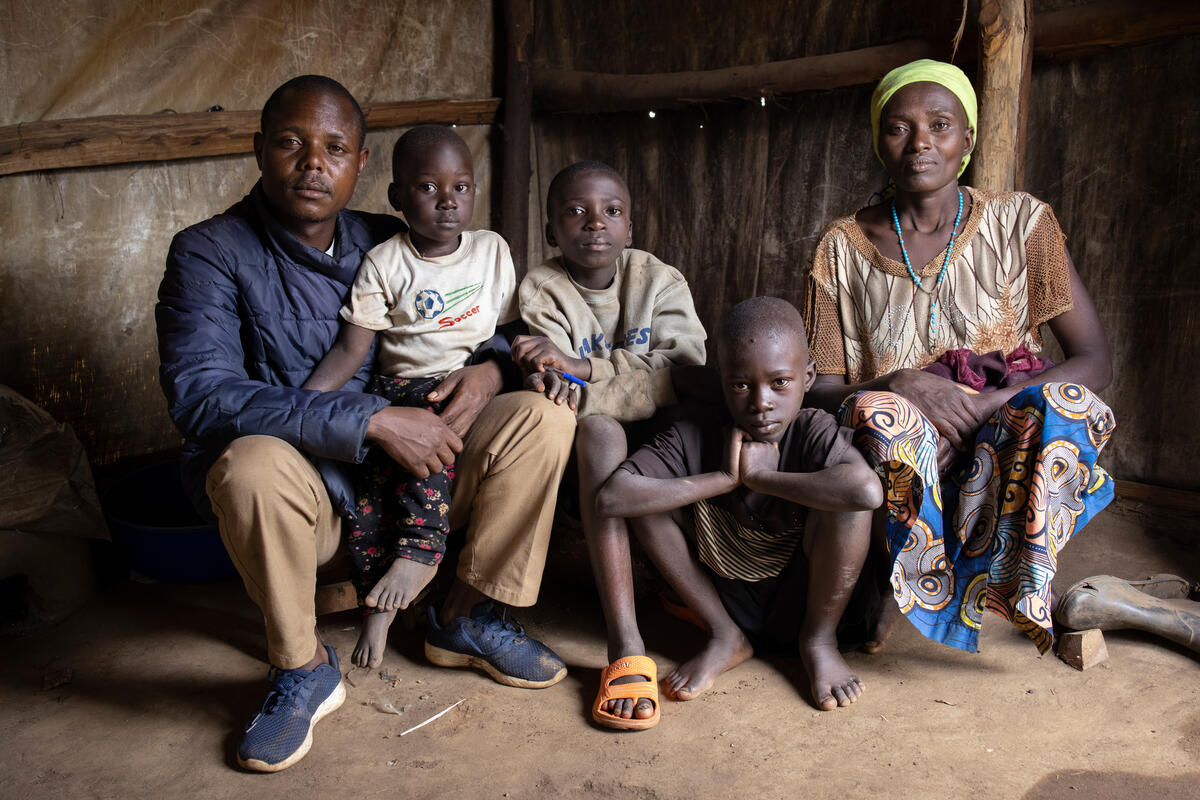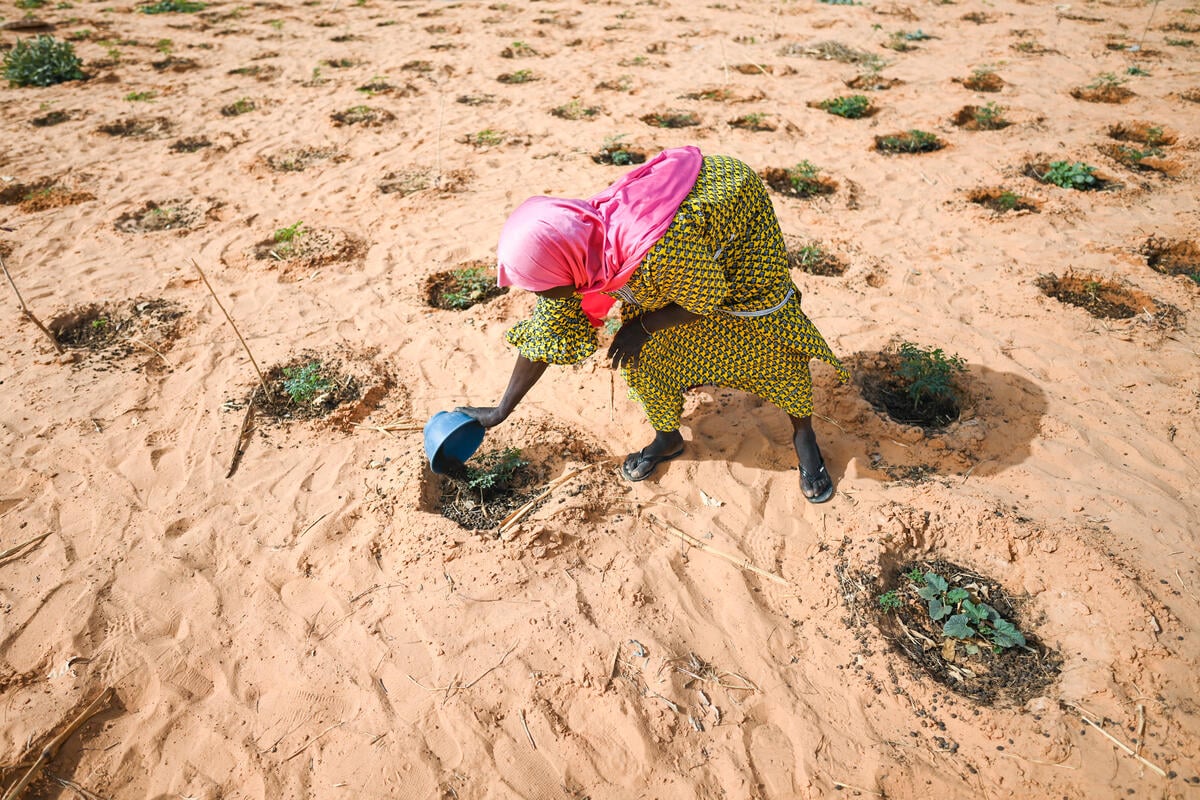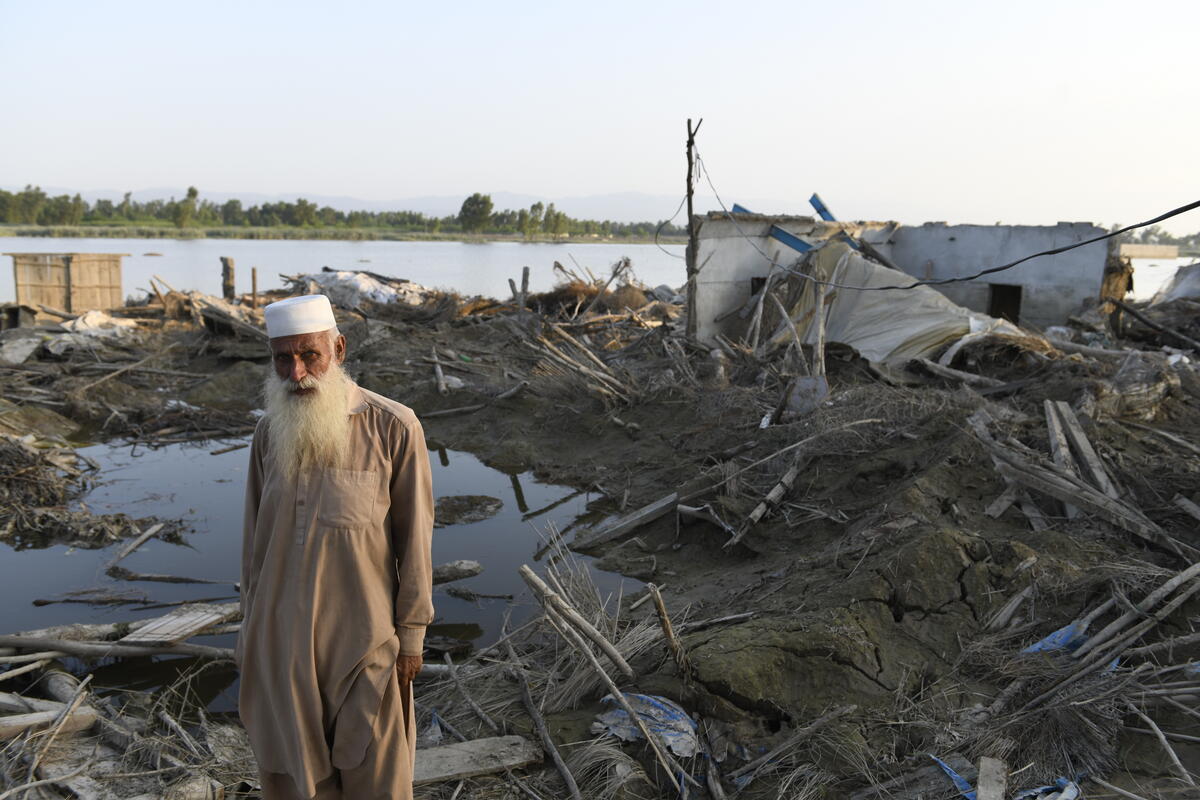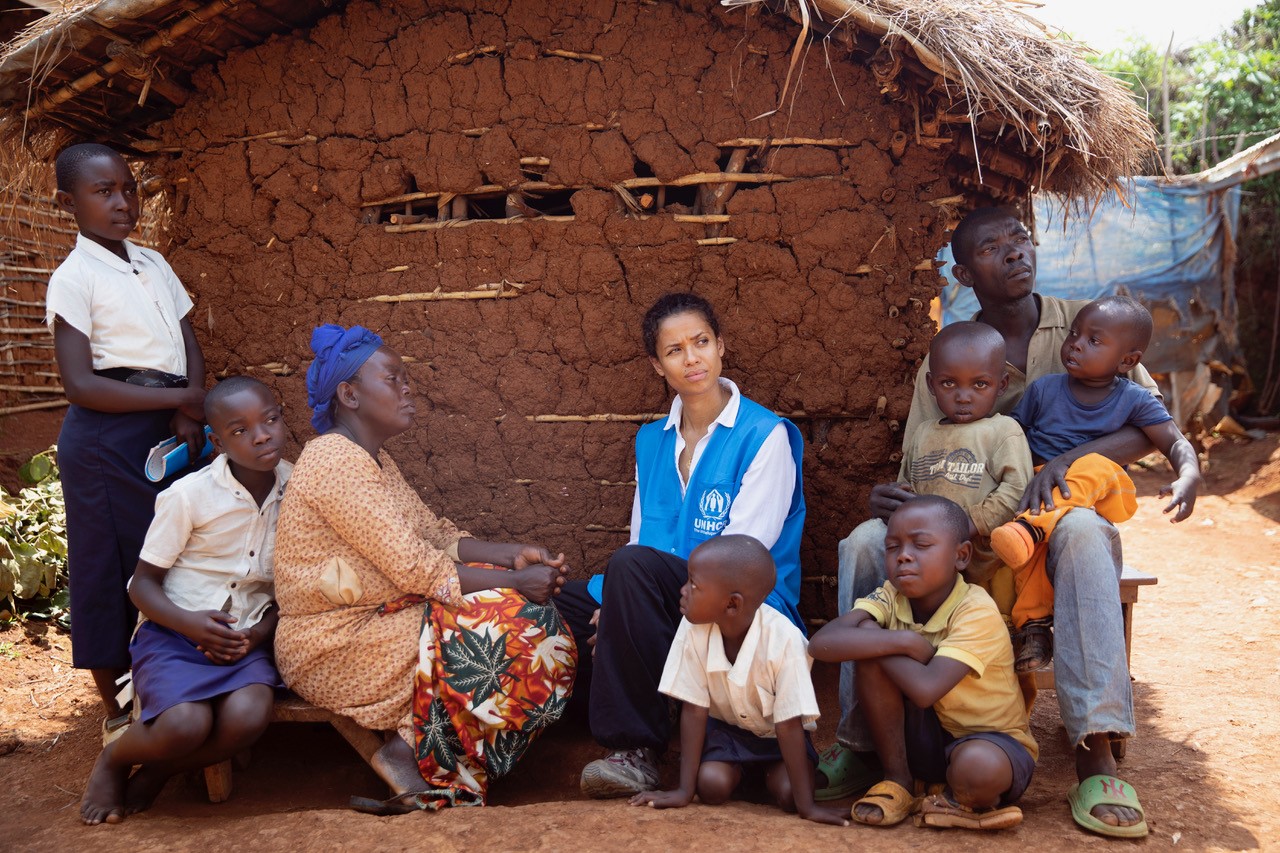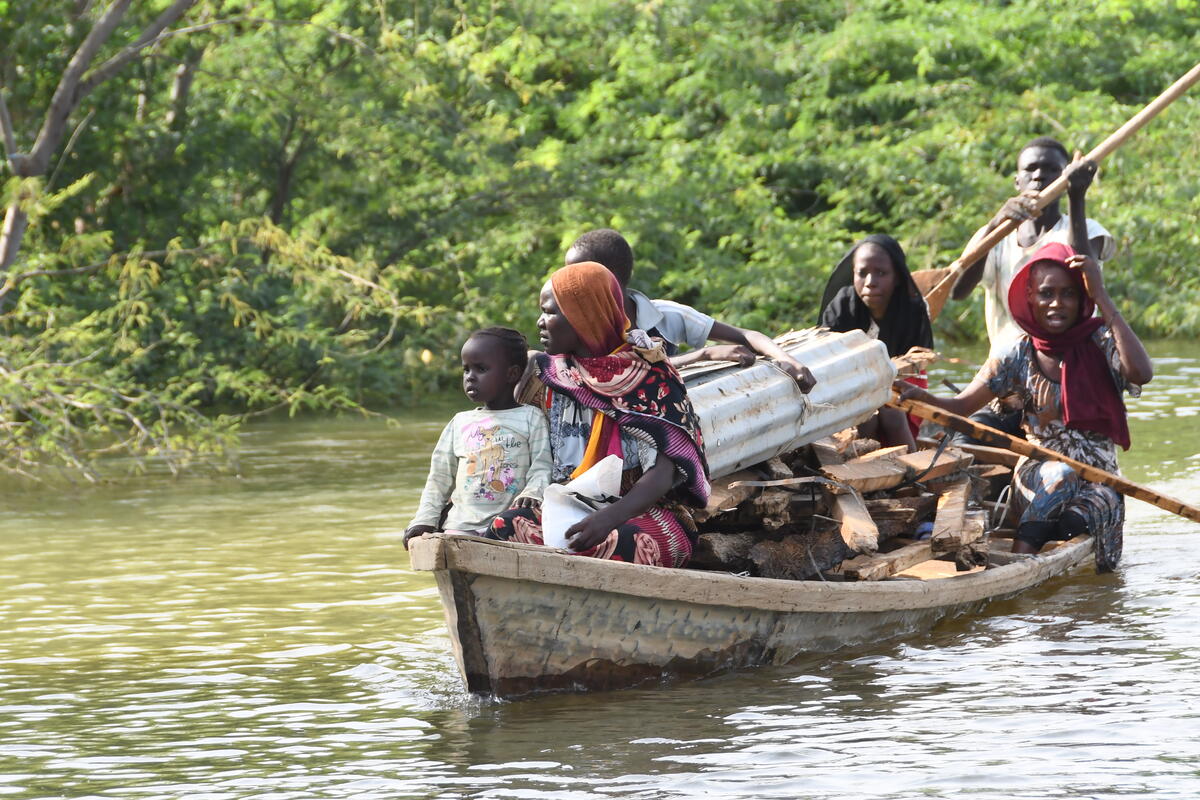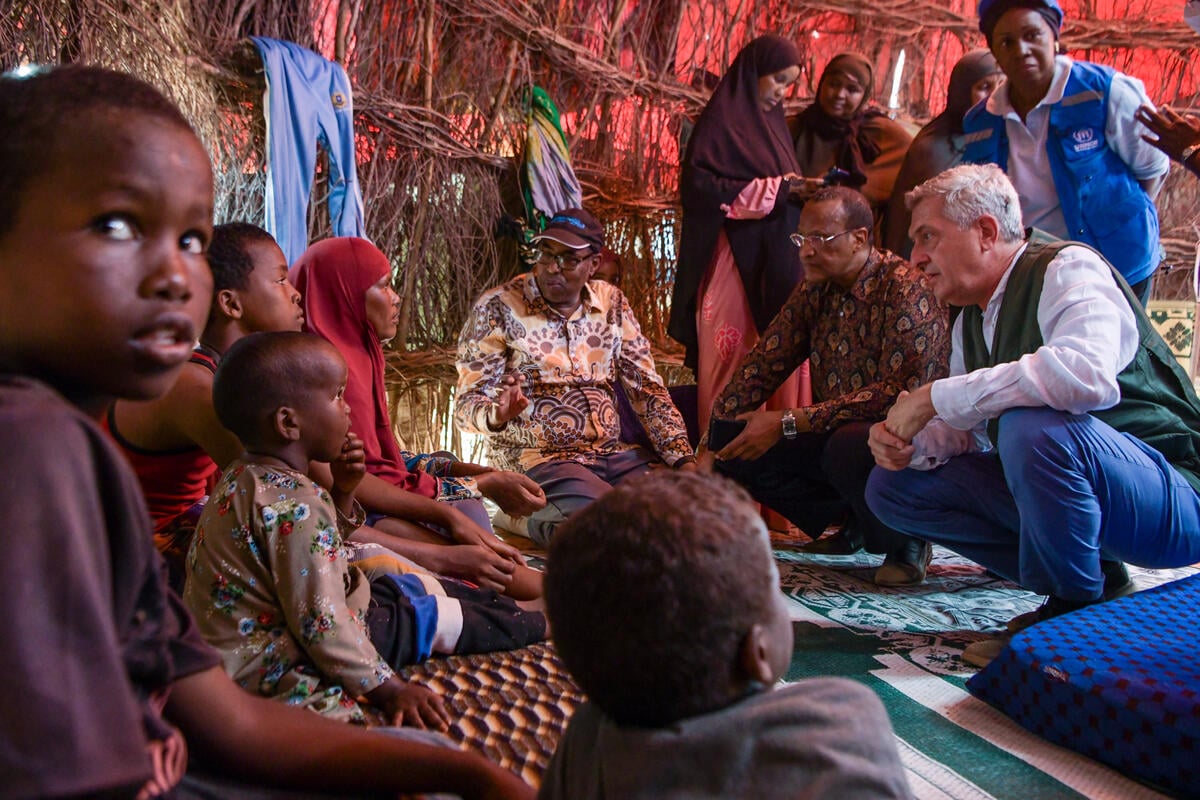Survivors of Lord's Resistance Army attacks urgently need assistance
Survivors of Lord's Resistance Army attacks urgently need assistance

DURU, Democratic Republic of the Congo, January 16 (UNHCR) - UNHCR members of a joint United Nations team expressed shock Friday at the physical condition of civilians who have survived repeated attacks in recent months by Ugandan rebels on their village in the northern Congolese province of Orientale.
The UN team flew by helicopter to Duru on Wednesday and reported that this once vibrant village was deserted and overgrown with vegetation after attacks by the Lord's Resistance Army (LRA).
First attacked by the LRA in September, Duru was again targeted by the rebel group earlier this week, leaving four people dead and the village a virtual ghost town. Back in September, the village had some 6,000 inhabitants. Now, less than 1,000 people remain.
Some of the survivors remaining in the vicinity came out of hiding to meet the visitors. They were traumatized and in urgent need of assistance. Many were clad in rags and looked famished and weak after spending nights in the bush without blankets or shelter. "We are hungry and we are poor," said one man.
The UN refugee agency field officers heard accounts of atrocities carried out by the LRA fighters when they raided Duru on Monday and Tuesday, killing four people, injuring an infant girl and abducting a nine-year-old boy. "I feel sad for my daughter," said the mother of the four-year-old shot in the leg. "She has lost her father," added the woman, who has two other children.
More than 560 civilians have been killed since the LRA began its campaign of violence last September in an area of Orientale province near the Democratic Republic of the Congo's borders with Uganda and South Sudan. This UNHCR estimate includes the victims of reported attacks this week on Duru and Diagbe, further to the north. More than 115,000 people are believed to have been forcibly displaced by the violence and the figure is likely to grow.
The villagers in Duru told UNHCR that the rebels looted and torched their houses, forcing residents to flee into the forest. Some of them made their way towards Dungu, a regional centre some 90 kilometres to the south where UNHCR has a team. Another 2,000 have crossed into Sudan.
The survivors seen in Duru told UNHCR that they did not feel safe, fearing new assaults, rape and abductions. There are no medical personnel in the village and no medicine. The villagers also said it was not safe to drink water from the wells.
Aid agencies face enormous logistical challenges reaching communities affected by the LRA attacks. Duru, for example, can only be reached by helicopter with a security escort of UN peace-keepers. Limited physical access, insecurity and impassable roads are hampering both the delivery and the distribution of relief supplies.
Aid is, however, coming to other parts of Dungu district. On Tuesday, a UN convoy carrying 70 tonnes of food and aid items provided by UN humanitarian agencies, including UNHCR, reached Dungu. The trucks spent 10 days on the road after picking up the World Food Programme and UNHCR aid in Goma, the capital of neighbouring North Kivu province.
In the coming days and weeks, the UN refugee agency and its partners hope to reach some 100,000 displaced people in locations such as Duru, Faradje, Doruma, Watsa and Isiro, which have not received any assistance since September. More joint missions are planned to threatened areas this weekend to assess the scale of the displacement and needs of the population.
By David Nthengwe in Duru
and Margarida Fawke in Dungu, Democratic Republic of the Congo



